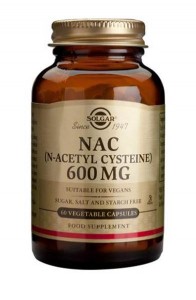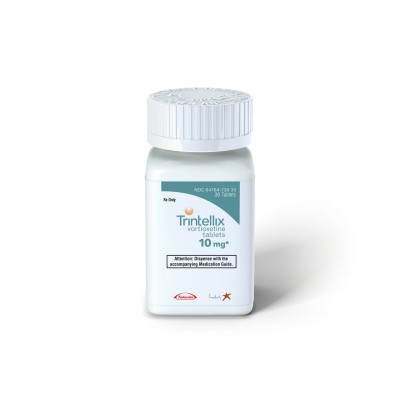Cognitive Function and White Matter Integrity in Individuals With Bipolar Disorder
Highlights from Posters Presented at the Society of Biological Psychiatry Meeting, April 27-29, 2023 in San Diego
Jennifer McDowell reported that they found “significantly reduced FA (fractional anisotropy) values in 85 bipolar probands compared to 66 controls” in multiple (n=8) white matter tracts. There were significantly lower scores in bipolar probands compared to controls on composite scores, ( p = 0.007), verbal fluency, ( p < 0.001), and symbol coding, (p = 0.023). They concluded that: “ Impacted connectivity in critical fiber tracts may be key to understanding the neural underpinnings of deficits, like cognition, observed in this clinical population.”
Editors note: It is of interest that lithium has been shown to normalize some white matter abnormalities in youngsters and help preserve cognitive function in older individuals. On this and many other accounts, way too little lithium is being used in the treatment of patients with bipolar disorder. Lithium not only increases neurogenesis (new grey matter neurons) and hippocampal volume, but also has positive effects on white matter tracts and even increases the length of one’s telomeres (which keeps you more healthy). In other ungrammatical words, “If your brain is not connected right, it don’t work right.”
Cognitive Abnormalities in Patients Recently Diagnosed with Bipolar Disorder

At the 2020 meeting of the International Society for Bipolar Disorders, researcher Kamilla Miskowiak described a study in which she and her colleagues grouped 158 patients in remission from recently diagnosed bipolar disorder into groups based on their neurocognitive functioning and particularly their emotional processing, and also observed cognitive function in 52 first-degree relatives of those with bipolar disorder. These groups were compared to 110 healthy control participants.
Miskowiak and colleagues identified three clusters among the patients with bipolar disorder: 23% were globally impaired, 31% were selectively impaired, and 46% had normal cognition. Those who were globally impaired had problems recognizing facial expressions in social scenarios. Cognitive impairment has previously been documented in patients who have had a longer duration or more episodes of bipolar illness.
First-degree relatives of cognitively impaired patients had impaired recognition of facial expressions, but their cognition in non-emotional areas was normal. Miskowiak and colleagues concluded that the impaired affective cognition in relatives of patients with neurocognitive impairment was an indication of inherited risk for bipolar disorder.
Editor’s Note: Children with bipolar disorder also have this deficit in facial emotion recognition. That 23% of recently diagnosed patients with bipolar disorder were globally impaired indicates that some cognitive impairments can emerge early in the course of bipolar disorder. Researcher Lakshmi Yatham has previously found that cognition improves after a first episode of mania only if no further episodes occur in the one year following, indicating that episode prevention is crucial even after a patient’s first episode.
Obesity Associated with Inflammation and Brain Abnormalities
At the 2019 meeting of the International Society for Bipolar Disorders, researcher David J. Bond reviewed the data on the multiple adverse effects of obesity in patients with bipolar disorder. These include increased cardiovascular risk, poorer response to treatment, brain abnormalities, and decreased cognitive function, which is correlated with the degree of overweight.
Editor’s Note: These data emphasize the importance of starting a nutritious diet early in life and sustaining it through adulthood, avoiding the drugs most associated with weight gain such as clozapine and olanzapine, and facilitating weight loss with drugs. There are several treatments that can aid in weight loss. One is the diabetes treatment metformin, starting at a high dose of 500mg twice daily, and increasing to 1000mg twice daily if tolerated. The anticonvulsants topiramate or zonisamide also promote weight loss. The most effective option is a combination of the antidepressant bupropion sustained release (at a dose of 150–300mg) plus the anti–substance abuse drug naltrexone (50mg). This combination was associated with a loss of 10% of body weight over 12 weeks in women with diabetes.
Curcumin Improves Memory and Depression
Recent studies suggest that curcumin, the micronutrient in turmeric that gives Indian curry its bright color, may reduce depression and improve memory.
A 2018 study published in the American Journal of Geriatric Psychiatry by Gary Small, director of geriatric psychiatry at UCLA’s Longevity Center, and colleagues found that a curcumin supplement improved mild, age-related memory loss in people without dementia.
Forty adults between the ages of 50 and 90 received either placebo or 90 mg of Theracumin, a bioavailable form of curcumin, twice daily for 18 months. The participants took cognitive tests at the beginning of the study and every 6 months during the study. Thirty of the participants also received positron emission tomography (PET) scans upon beginning and ending the study to evaluate the appearance of plaques and tangles in their brains.
Participants who received curcumin saw improvements in verbal and visual memory and attention over the course of the study compared to those who received placebo. The curcumin participants also saw mild improvements in mood, and less accumulation of amyloid plaques and tau tangles in the amygdala and hypothalamus, brain areas that play a role in memory and emotion. A few participants had mild gastrointestinal effects after taking Theracumin.
In India, where diets are high in curcumin, there is a lower incidence of Alzheimer’s than in the west, and older people also have better cognitive performance than in the west.
Curcumin has anti-inflammatory, antioxidant, and neuroprotective properties. Researchers speculate that curcumin may reduce brain inflammation, which has been implicated in both depression and Alzheimer’s disease.
A 2017 meta-analysis by Qin Xiang Ng and colleagues of 6 studies of curcumin including a total of 377 patients found that the substance has significant antidepressant effects compared to placebo. Half of the studies also reported improvements in anxiety. No adverse events were reported. Ng’s meta-analysis was published in the Journal of the American Medical Directors Association.
Hearing Aids May Lessen Cognitive Decline, Memory Loss
A 2018 article by researcher Asri Maharani and colleagues in the Journal of the American Geriatrics Society reports that using a hearing aid was associated with better scores on a test of episodic memory, and that declines in episodic memory slowed after participants began using hearing aids.
The study included 2,040 adults aged 50 years and up. Maharani and colleagues used data from the Health and Retirement Study, which measured participants’ cognitive functioning every two years for 18 years. Participants were asked to recall 10 words both immediately and after some delay.
The authors suggested that improving access to hearing aids earlier in the course of hearing impairment might help to stem the rise of dementia.
Antioxidant N-Acetylcysteine Improves Working Memory in Patients with Psychosis
 In a 2017 article in the journal Psychological Medicine, researcher Marta Rapado-Castro and colleagues reported that among 58 patients with bipolar disorder or schizophrenia and symptoms of psychosis, those who took two grams per day of the antioxidant n-acetylcysteine (NAC) showed improvements in working memory after six months compared to those who took placebo over the same study period.
In a 2017 article in the journal Psychological Medicine, researcher Marta Rapado-Castro and colleagues reported that among 58 patients with bipolar disorder or schizophrenia and symptoms of psychosis, those who took two grams per day of the antioxidant n-acetylcysteine (NAC) showed improvements in working memory after six months compared to those who took placebo over the same study period.
Antipsychotic medications can typically reduce psychotic symptoms such as delusions or hallucinations, but cognitive symptoms such as problems with learning, memory, or information processing may remain. NAC, which is sold over-the-counter as a nutritional supplement, seemed to improve these symptoms.
The researchers suggest that larger studies of NAC are needed, particularly to determine whether giving NAC to patients during their first episode of psychosis could prevent cognitive decline from occurring at all during the course of their illness.
NAC has been found to have a range of benefits, including reducing substance abuse and interfering with habit-based behaviors such as compulsive hair-pulling, obsessive-compulsive disorder, and gambling.
Researcher Michael Berk, a co-author of the study, reported in the journal Biological Psychiatry in 2008 that NAC could also improve depressive symptoms in bipolar disorder and negative symptoms in schizophrenia.
Editor’s Note: Since cognitive deficits are common in both schizophrenia and bipolar disorder, using NAC in addition to antipsychotic medications could be a useful tool to address these types of symptoms.
Vortioxetine Improves Processing Speed in Depression
 In May 2018, the US Food and Drug Administration (FDA) approved a label change for the antidepressant vortioxetine (Trintellix), reflecting new data that show the drug can improve processing speed, an aspect of cognitive function that is often impaired in people with depression. Vortioxetine was first approved by the FDA for the treatment of depression in 2013.
In May 2018, the US Food and Drug Administration (FDA) approved a label change for the antidepressant vortioxetine (Trintellix), reflecting new data that show the drug can improve processing speed, an aspect of cognitive function that is often impaired in people with depression. Vortioxetine was first approved by the FDA for the treatment of depression in 2013.
The approval followed eight-week double-blind placebo-controlled studies of vortioxetine’s effects on cognitive function in adults aged 18–65 who have depression. The studies were known as FOCUS and CONNECT. Patients received either 10mg/day, 20mg/day, or placebo. Those who took vortioxetine showed improvement on the Digit Symbol Substitution Test, a measure of processing speed, in addition to improvement in their depression.
Editor’s Note: This is the first time the FDA has approved labeling that describes an antidepressant as improving aspects of cognition in depression. Cognition is impaired in many patients with depression, such that this component of the drug’s effects could be of clinical importance. Among the 5 serotonin (5HT) receptor effects of the drug (in addition to the traditional blockade of serotonin reuptake shared by all selective serotonin reuptake inhibitor antidepressants (SSRIs)), it is likely that vortioxetine’s effects in blocking 5HT-3 and 5HT-7 receptors are important to the drug’s effects on processing speed.
Playing Tackle Football Before Age 12 May Be Bad for the Brain
A 2017 study found that men who began playing American tackle football before age 12 were more likely to have depression, apathy, problems with executive functioning, and behavioral issues in adulthood than their peers who began playing football after age 12. Duration of football play did not seem to matter—those men who stopped playing football after high school were just as likely to be affected in adulthood as those who went on to play football in college or professionally.
The study by Michael L. Alosco and colleagues was published in the journal Translational Psychiatry. It included 214 men (average age 51) who had played football in their youth, but not other contact sports. The men reported their own experiences with depression, apathy, cognitive function, and behavioral regulation. Those who began football before age 12 were twice as likely to report impairment in behavioral regulation, apathy, and executive function than those who began playing later. Those who started younger were also three times more likely to have clinical depression in adulthood than those who started older.
According to Alosco and colleagues, between ages 9 and 12, the brain reaches peak maturation of gray and white matter volume, and synapse and neurotransmitter density also increases. The repeated head injuries that can occur during youth football play during this time may disrupt neurodevelopment, with lasting negative effects.
One drawback to the study was that recruitment was not random—men who volunteered for the study might have done so due to a recognition of their own cognitive problems. However, the results suggest more study is needed, and caution is encouraged when making decisions about youth football participation. Some youth football leagues have begun placing greater limits on the type of contact allowed during play.
Grape Extract May Improve Cognition
 Polyphenolic compounds in colored fruits and vegetables are thought to improve memory and cognition. Extracts from Vitis vinifera, the grape species that includes almost all well-known varieties of wine, have been found to have many beneficial effects: antioxidant, antibacterial, anti-inflammatory, anticancer, antidiabetic effects, in addition to protective effects on skin, the heart, the liver, and neurons.
Polyphenolic compounds in colored fruits and vegetables are thought to improve memory and cognition. Extracts from Vitis vinifera, the grape species that includes almost all well-known varieties of wine, have been found to have many beneficial effects: antioxidant, antibacterial, anti-inflammatory, anticancer, antidiabetic effects, in addition to protective effects on skin, the heart, the liver, and neurons.
For about a decade, researchers have known that polyphenolic compounds from grapes could improve cognitive impairment and reduce neuropathological lesions in the brain in animals with a model of Alzheimer’s disease. New research suggests that the same compounds that protect the plant against damage, fungus, or UV rays may also protect the human brain against damage.
Researchers led by Gioacchino Calapai tested a trademarked nutritional supplement called Cognigrape, which includes extracts from Vitis vinifera, in healthy adults between the ages of 55 and 75 in Italy. One group of 57 participants received 250mg of Cognigrape per day while the other group of 54 received placebo once a day for twelve weeks. Several weeks after the supplementation period, the group taking Cognigrape showed significant improvement in cognitive function compared to baseline and compared to the group taking placebo. The Cognigrape group also showed significant reductions in depression symptoms, improvements in somatic symptoms, and improvements in attention, language, immediate memory, and delayed memory. This is the first study to find an improvement in cognitive performance in humans after supplementation with a Vitis vinifera extract.
The study by Calapai and colleagues was published in the journal Frontiers in Pharmacology in 2017.
Concentrated Blueberry Juice Daily Improves Brain Function
A small study in the journal Applied Physiology, Nutrition, and Metabolism showed an improvement in cognitive function, bloodflow to the brain, and brain activation in older people who drank concentrated blueberry juice every day for 12 weeks.
The 26 participants were healthy adults between the ages of 65 and 77. People who consumed more than 5 daily servings of fruits and vegetables were excluded from the study. Twelve participants consumed 30mL (less than a quarter cup) of the concentrated juice each day, while the other 14 received a daily placebo instead.
The participants did a variety of cognitive tests before and after the study period. Magnetic resonance imaging (MRI) scans collected information about bloodflow and brain function during these tests.
Participants in the blueberry juice group showed statistically significant increases in brain activity by the end of the study compared to those in the placebo group.
The study was led by researcher Joanna Bowtell.






